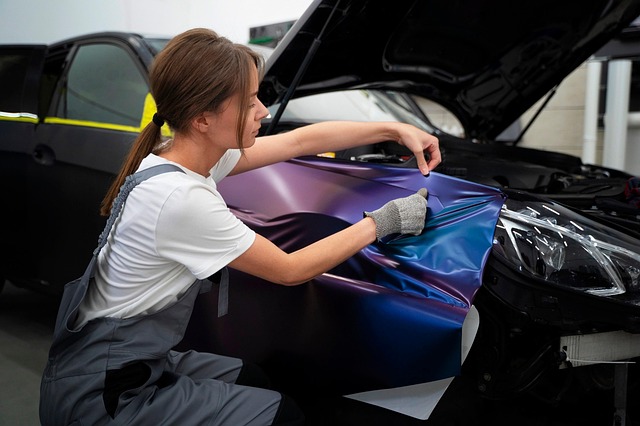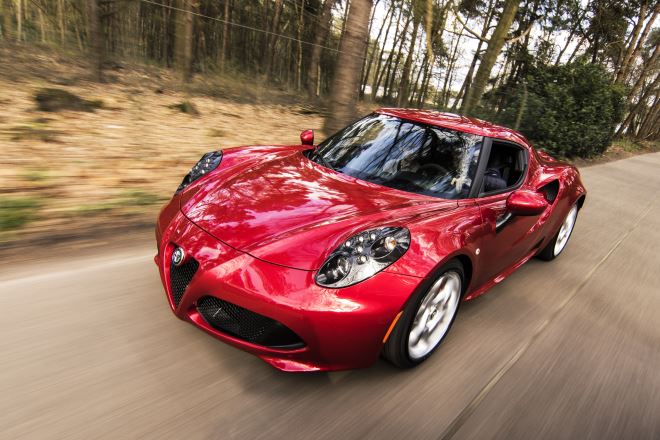The Benefits of Car Wrapping: Durable Protection with a Personalized Look
Car wrapping offers a sleek way to protect and personalize your vehicle. Durable vinyl films shield the paint from scratches, UV rays, and weather while giving your car a fresh, customized look. It’s easy to maintain, reversible, and perfect for expressing your individual style.

Car wrapping has revolutionized how vehicle owners approach customization and protection. Unlike traditional paint jobs that permanently alter a vehicle’s appearance, vinyl wraps offer a reversible solution that can be changed according to preference or need. This modern approach to vehicle aesthetics combines practicality with creative expression, making it increasingly popular among car enthusiasts, business owners, and everyday drivers alike.
What Is Car Wrapping & Why It’s Worth It
Car wrapping involves applying large vinyl sheets to a vehicle’s exterior surfaces. These specialized vinyl films adhere to the original paint job, creating a new appearance without damaging the factory finish underneath. The process typically includes thorough cleaning, careful application of vinyl sheets, heating to conform to curves, and trimming for a seamless finish.
The worth of car wrapping extends beyond aesthetics. First, it provides a protective layer that shields the original paint from scratches, stone chips, UV damage, and minor abrasions. This protection helps maintain the vehicle’s resale value by preserving the factory paint. Additionally, quality wraps can last anywhere from 5-7 years with proper care, making them a durable investment.
For businesses, vehicle wraps transform ordinary cars into mobile advertisements without the permanent commitment of custom paint. For individual owners, wraps offer the freedom to express personality through color changes, finishes (matte, gloss, satin, chrome), or custom designs that would be prohibitively expensive with traditional paint.
Finding Services & Pricing Nearby
Finding reputable car wrapping services requires research and consideration of several factors. Start by searching for local specialists with portfolios demonstrating their expertise. Reading customer reviews and examining before-and-after photos can provide insight into a shop’s quality standards and attention to detail.
When contacting providers, request detailed quotes that break down costs for materials, design work, and installation. Reputable shops will offer consultations to discuss your vision, provide material samples, and explain the installation process. Ask about warranties, as quality installers typically stand behind their work with guarantees against peeling, bubbling, or premature fading.
The cost of wrapping a vehicle varies significantly based on several factors including vehicle size, wrap complexity, and material quality. Below is a general pricing breakdown for different vehicle types and wrap options:
| Vehicle Type | Partial Wrap | Full Wrap (Standard) | Full Wrap (Premium) |
|---|---|---|---|
| Compact Car | $1,000-$1,500 | $2,000-$3,000 | $3,000-$4,000 |
| Sedan/Coupe | $1,200-$2,000 | $2,500-$3,500 | $3,500-$5,000 |
| SUV/Crossover | $1,500-$2,500 | $3,000-$4,500 | $4,500-$6,000 |
| Full-Size Truck | $1,800-$3,000 | $3,500-$5,000 | $5,000-$7,000 |
Prices, rates, or cost estimates mentioned in this article are based on the latest available information but may change over time. Independent research is advised before making financial decisions.
Additional costs may include design services ($200-$500), removal of existing wraps ($500-$1,000), or special finishes like color-shifting or textured vinyl (20-50% premium). Always request a detailed quote and timeline before committing to a service provider.
Design Options & Maintenance Tips
The design possibilities with car wraps are virtually limitless. Beyond solid colors, owners can choose from a variety of finishes including glossy, matte, satin, metallic, chrome, carbon fiber, and even color-shifting options. Custom graphics, patterns, and photorealistic images can be incorporated into designs, allowing for truly unique vehicles that stand out from factory paint jobs.
Digital design technology enables wrap designers to create mock-ups showing exactly how the finished product will look before installation begins. This visualization process helps refine concepts and ensures customer satisfaction with the final result. Many professional wrap shops employ graphic designers who can transform rough ideas into polished designs tailored to specific vehicles.
Proper maintenance significantly extends a wrap’s lifespan. Hand washing with mild soap and water is recommended over automatic car washes, which can damage edges with their harsh brushes. Avoid pressure washers, especially on seams and edges where water could penetrate and compromise adhesion. For bird droppings, tree sap, or other stubborn contaminants, prompt cleaning prevents potential staining or damage to the vinyl.
Parking in shade or garages whenever possible helps prevent UV damage and color fading, particularly with vibrant designs or specialty finishes. Some wrap manufacturers offer specific cleaning products designed to maintain vinyl’s appearance and protective properties. A quality liquid wax designed for vinyl (not traditional car wax) applied every few months can add an additional layer of protection against environmental contaminants.
Advantages Over Traditional Paint
Car wraps offer several distinct advantages over traditional paint jobs. Perhaps most significantly, they provide temporary transformation—when it’s time for a change or when selling the vehicle, the wrap can be professionally removed to reveal the original paint underneath, often in pristine condition. This reversibility is impossible with custom paint.
The installation process for wraps is considerably faster than quality paint jobs. While a professional paint job might require a week or more, most wraps can be completed in 2-5 days depending on complexity. This reduced downtime is particularly valuable for commercial vehicles or daily drivers.
From an environmental perspective, wrapping eliminates the harmful VOCs (volatile organic compounds) associated with automotive painting. The application process doesn’t require ventilated spray booths or create overspray concerns, making it a more environmentally friendly option for vehicle customization.
For those seeking unique finishes, wraps provide options that paint cannot match economically. Textured finishes, color-shifting effects, and matte appearances that would require specialized (and expensive) paint processes are readily available in vinyl form at more accessible price points.
Car wrapping represents an innovative solution for vehicle owners seeking protection and personalization without permanent commitment. With proper installation and maintenance, these vinyl applications deliver years of durability while preserving the underlying value of the vehicle. Whether for business branding, personal expression, or simply protecting a factory finish, car wraps offer versatility and value that continues to drive their popularity in the automotive customization market.




